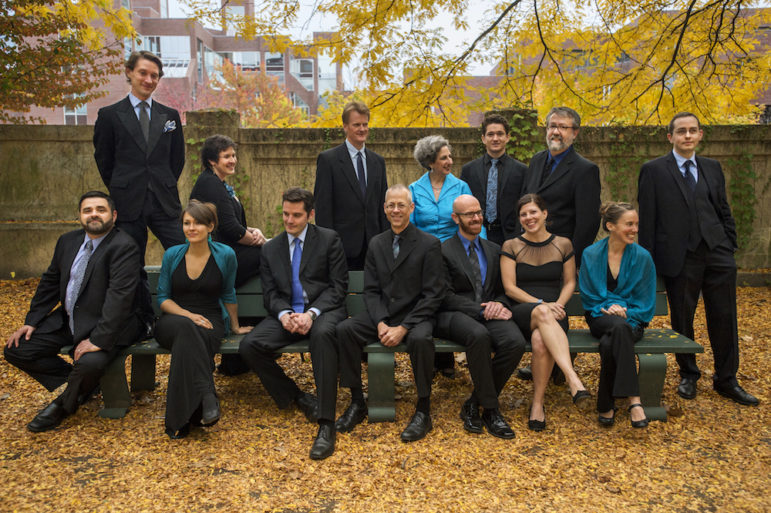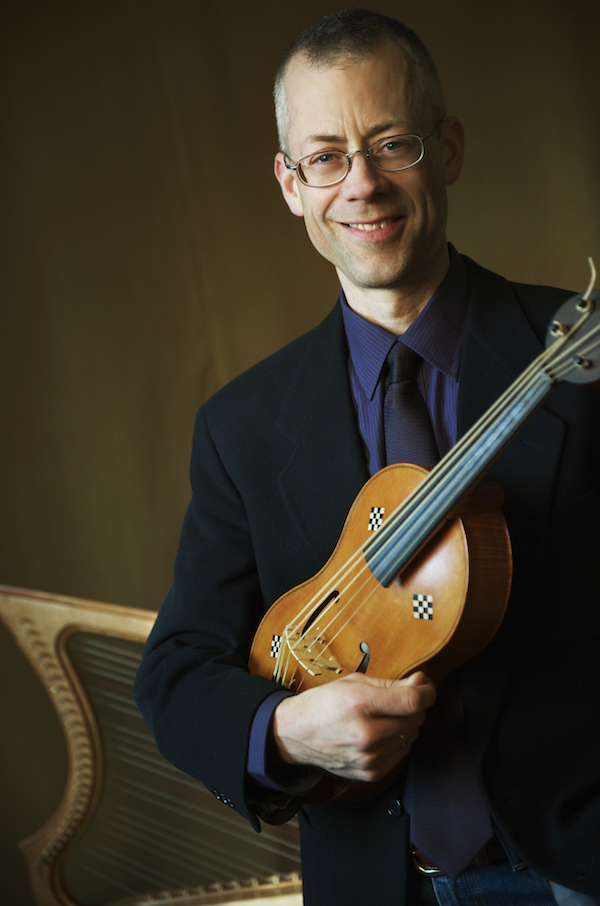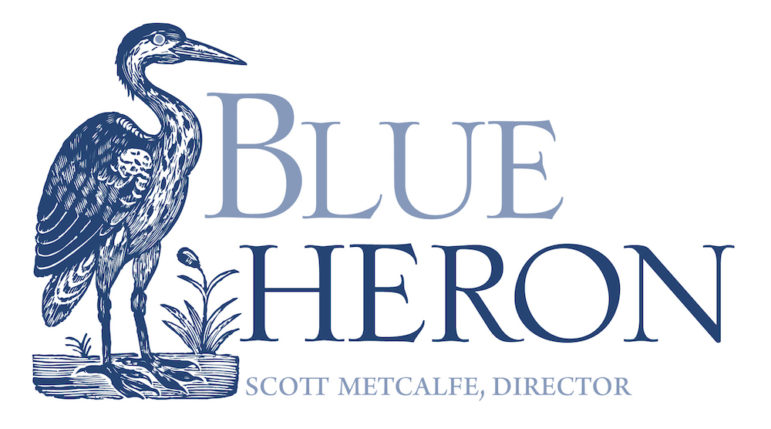
Liz Linder
Blue Heron, directed by Watertown’s Scott Metcalfe, recently won a Gramophone Classical Music Award in Early Music. The group is the first non-European Group to do so.
On Sept. 13, Watertown resident Scott Metcalfe and the group he directs, Blue Heron, made history by winning a prestigious British classical music award.
The group, mostly made up of people from around Boston, or who used to live in the area, won the Gramophone Classical Music Award in the Early Music category.
“We’re the first non-European group to win the Early Music award in the 41 years it has been awarded,” Metcalfe said.
Metcalfe flew over to collect the award.
“It was amazing,” Metcalfe said. “I want to London for a couple days. It was like going to the Grammys. There were fabulous musicians from all over. There were people I knew in my line of work, and very famous people. There were also some wonderful musicians I had never heard, from Estonia and Latvia.”

Liz Linder
Watertown’s Scott Metcalfe is the musical and artistic director of Blue Heron.
Most of the music that people think of as classical music was composed in the 19th century, Metcalfe said, but Early Music includes pieces from the year 500 to the 1700s, including Medieval, Renaissance and Baroque music. Blue Heron’s repertoire includes 15th-century English and Franco-Flemish polyphony, Spanish music between 1500 and 1600, and early 16th-century English music.
The recording that won the Gramophone Award came from the especially the Peterhouse partbooks, copied c. 1540 for Canterbury Cathedral.
“It was the fifth disc in a set of five from a set of manuscript copied in the 15th Century in England,” Metcalfe said. “No body is doing music from this set of books. Pretty much everything we record is a world premier.”
Metcalfe began playing baroque violin in college at Brown and moved to Boston in the late 1980s. He has lived in Watertown for 24 years, mostly in the East End, but moved with his family to a home on the Westside in May.
For many years, Metcalfe spent most of his time as a freelance violinist, but in 1999 he became the musical and artistic director of Blue Heron. Running the group has become pretty much a full-time job, he said.
With Early Music, Metcalfe said a lot of time is spent finding out about the context of when the music was written, what type of ensemble performed and in where it was performed.
“We are not trying to recreate the it like a Renaissance fair. Music is a living art,” Metcalfe said. “We look for new ways to perform and present the music.”
The instruments are different from modern ones. The original ones are not available, so Metcalfe has a baroque violin and a five-string fiddle made by a man in Rhode Island, and a 15th Century style harp made in Vermont.

Each year, Blue Heron gives a series of performances at the First Church in Cambridge (near the Sheraton Commander), and also performs in Boston, Wellesley and Providence. The group practices at the Church of the Good Shepherd in Watertown.
“We connected through a colleague of my wife’s at work, and found a welcoming, friendly church. We play right in the sanctuary,” Metcalfe said, who added that Blue Heron group performed at the church in 2016.
The CDs are recorded at Church of the Redeemer in Chestnut Hill.
Blue Heron recently performed the first of its 2018-19 series. The next one is the Christmas in 15th Century France & Burgundy, on Dec. 21 and 22 in Cambridge.
Merriam-Webster says:
If you aren’t sure whether to use led or lead as the verb in your sentence, try reading it aloud to yourself. If the verb is pronounced /LED/, use led.
Good tip!
Congratulations Scott! Beautiful work!